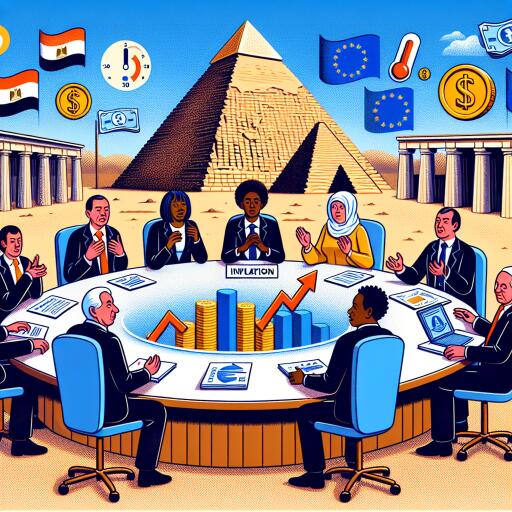Egypt and EU Launch an Investment Conference to Combat Economic Challenges
In an ambitious move to reinforce its economy, Egypt, in collaboration with the European Union, initiated a two-day investment conference aimed at fostering the strategic partnership between the two entities. This conference marks a significant step towards the implementation of a comprehensive aid package designed to alleviate the financial woes faced by Egypt.
The centerpiece of this collaboration is a substantial 7.4 billion-euro ($8 billion) aid package, earmarked for Egypt over the next three years. This financial boost, a blend of grants and loans, is primarily aimed at addressing the acute foreign currency shortages and the rampant inflation plaguing the Arab world’s most populous nation.
President Abdel Fattah el-Sissi, in his opening address, underscored the importance of the conference, hailing it as a testament to the European Union’s confidence and backing of Egypt’s economic reforms. These reforms, carried out over the last decade, signify a robust commitment to revitalizing the Egyptian economy.
The European Union, represented by Executive Vice-President Valdis Dombrovskis, plans to sign a memorandum of understanding with Egypt, provisioning for a short-term macro-financial assistance sum of up to €1 billion ($1.07 billion). This financial assistance is tailored to bolster Egypt’s ongoing economic reform initiatives.
Beyond monetary assistance, the conference will witness the signing of several other investment deals with European corporations and bilateral cooperation agreements. These agreements cover a spectrum of areas, including employment and skill enhancement, vaccine production, food security, and sustainable development initiatives.
European Commission President Ursula von der Leyen highlighted the swift progress made in the EU-Egypt partnership, emphasizing the conference as just the beginning of a revitalized alliance.
Egypt embarked on a comprehensive reform agenda in 2016, underpinned by an agreement with the International Monetary Fund (IMF). The country’s reform strategies have included liberalizing the local currency exchange rate, decreasing state subsidies on essential goods, scaling down public investment, and prioritizing private sector-led economic growth.
A recent decision to float the Egyptian pound and an increase in the main interest rate in March were measures aimed at curbing inflation and enticing foreign investment, aligning with IMF’s conditions for an enhanced bailout loan.
However, these economic adjustments have escalated the cost of living for the Egyptian populace, augmenting the hardships faced by a population where approximately 30% live below the poverty line. Despite these challenges, the partnership with the EU is viewed as a crucial lifeline, not only to stabilize Egypt’s economy but also to mitigate potential migratory pressures stemming from regional conflicts and economic strife.
